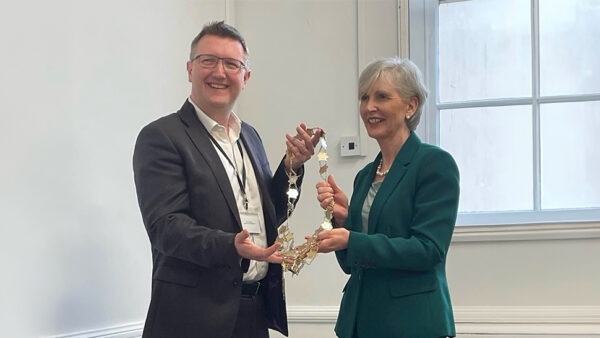

Privilege is a right which attaches to certain types of confidential communication. It entitles a party who is subject to a duty to disclose documents during adversarial proceedings to withhold inspection of certain documents without any adverse inferences being drawn. It can also be used to deny regulators, tribunals, courts and regulatory bodies access to documents. Once privileged has been established it cannot be overridden save in very limited circumstances, such as fraud. However, privilege can be lost if communications lose their confidentiality.
A good understanding of how privilege can be claimed (and how to ensure it is preserved) is essential for in-house lawyers who often have a multi faceted role of lawyer; executive and employee.
Back to Basics
There are various types of privilege, but the most common (and the focus for this briefing) is Legal Professional Privilege (“LPP”), which comprises – Legal Advice Privilege and Litigation Privilege.
Legal Advice Privilege (“LAP”)
- This protects confidential communications (and evidence of those communications) between a lawyer and a client provided the communications are for the purpose of seeking and receiving legal advice. It does not protect communications with third parties.
- The ‘client’ is restrictive – it does not extend to everyone within the client organisation, or even the whole department or division seeking the legal advice. It is only those individuals who are specifically tasked with seeking and obtaining legal advice from their lawyers (the “Core Team”). Communications falling outside of this remit are generally not privileged.
- LAP is not confined to advice purely on the law – it also covers advice as to what should ‘prudently and sensibly be done in the relevant legal context’. This will encompass commercial or strategic advice provided that it relates to a client’s legal rights, liabilities, obligations and remedies (but not in any other circumstances).
Litigation Privilege
- This protects confidential communications (and evidence of those communications) which are created for the dominant purpose of obtaining legal advice, evidence or information in preparation for actual litigation, or litigation that is reasonably in prospect (i.e. there should be more than a mere possibility of litigation).
- Excludes fact finding inquiries or investigations (i.e. internal grievance and disciplinary proceedings)
- It is wider in scope than LAP because it covers not only communications between a lawyer and his client but also between:
– the lawyer and a third party (e.g. an expert or a witness)
– the client and a third party
– agents of the lawyer/client, as long as they are simply a medium for communication.
Who is the “Lawyer”?
For LAP the “lawyer” must be a barrister qualified under the Bar Council; a solicitor qualified under the Solicitors Regulation Authority (with a current practising certificate); a properly supervised legal executive; paralegal or trainee solicitor.
The Supreme Court has recently confirmed that legal advice provided by non-lawyers (such as accountants) cannot attract legal advice privilege (R (on the application of Prudential plc and another) (Appellants) v Special Commissioner of Income Tax and another (Respondents) [2013] UKSC 1).
Privilege will extend to the advice provided by foreign lawyers as long as they are qualified to practise under their own regulatory body, and to foreign lawyers based in England & Wales qualified to practise under the Solicitors Regulatory Authority.
LPP will apply to advice given by in-house lawyers provided they are acting as a lawyer rather than in an executive or compliance capacity (and are qualified to practise as mentioned above).
An important exception to note is that all advice given by in-house lawyers to their employers is disclosable in an EU Commission Competition investigation. The decision in Akzo Nobel Chemicals Ltd & anor v European Commission & ors [2010] ECJ C-550/07 P reaffirmed that in-house legal lawyers cannot claim LPP when under investigation by the European Commission. The practical effect for in-house lawyers is that they may be forced to provide advice orally or engage external lawyers if they wish to maintain privilege over written communications in the context of such investigations.
How is LPP waived and/or lost?
A fundamental aspect of privilege is that the document in question must be confidential. If confidentiality is waived any claim to privilege will be lost. Confidentiality and therefore privilege may be waived or lost in several different ways:
- express waiver by the party entitled to privilege (a party may be obliged to disclose other documents if it appears that an express waiver of a particular privileged document gives a false impression);
- inadvertent waiver (in which case the permission of the Court is required for the other party to rely on the document);
- other loss of confidentiality (e.g. by publishing the document);
- by placing privileged documents before the Court;
- by referring to documents in a statement of case or witness statement;
- by serving an expert’s report (which may also entail loss of privilege to any documents referred to in the report);
- if the document in question was created for fraudulent or criminal proceedings.
Particular issues for In-House Lawyers
There are potential problems for in-house lawyers seeking to retain privilege in documents as they often perform the roles of an employee, legal and business adviser. When litigation arises it is not unusual for there to be arguments that the communications of an in-house lawyer constitute business advice that should not attract privilege, or that any privilege has been lost because advice has been disseminated too widely.
Practical Safeguards for In-House Lawyers
To reduce the risk of losing privilege, always consider the following:
- Ensure your advice is linked to a relevant legal context in order to avoid arguments that it was free-standing business advice.
- Keep legal advice separate in a distinguishable and clearly marked file.
- Identify the key individuals or ‘Core Team’ who will have responsibility for managing instructions and/or receiving advice. Ensure that documents are not disseminated beyond the Core Team. (For example, attaching legal advice to Board Minutes may be sufficient to waive privilege).
- Caution should be exercised when commenting on the written advice provided by external lawyers and/or when showing it to colleagues.
- If it is necessary to report advice outside of the Core Team, limit this to a verbal summary and ensure that any minutes of the meeting do not contain a note of the advice. Do not create documents summarising legal advice unless it is for the dominant purpose of litigation. These documents will not necessarily be privileged and may need to be disclosed.
- Mark documents Legally Privileged: Strictly Private and Confidential. Not for Circulation. (This will not automatically mean that the document is privileged, but it will help to reinforce the message about limiting circulation).
- Ensure that individuals outside of the Core Team do not create documents which relate to a dispute. Warn of the dangers of making manuscript notes on privileged documentation. Such documentation is unlikely to be privileged.
- Unless communicating with lawyers, make all communications as factual as possible. Avoid recording any views on potential weaknesses.
- It is sensible to obtain legal advice before asking a member of staff or third parties (such as accountants) to undertake research or investigative work connected to the instruction of the legal advisors, again to ensure that such steps are privileged.
- If you have to share privileged documents between a parent and subsidiary companies do so pursuant to a confidentiality agreement.
- Review emails before forwarding them on or copying them. If they contain legal advice, send a separate email.
- Start requests to external lawyers with the words “I want your advice on…” or similar. Do not just ‘cc’ external lawyers as a way of asking for advice.
- If in doubt, seek advice from external lawyers at an early stage.










